 10 Tips? Did you hear that right? How can there be that many air conditioning tips to increase efficiency, longevity, and the overall health of your system? Well, take it from your local HVAC contractor that there are probably even more tips out there! Best practices and DIY tips exist in many forms, whether it’s home improvement, keeping your car in good shape, or even helping your comfort systems keep you happy.
10 Tips? Did you hear that right? How can there be that many air conditioning tips to increase efficiency, longevity, and the overall health of your system? Well, take it from your local HVAC contractor that there are probably even more tips out there! Best practices and DIY tips exist in many forms, whether it’s home improvement, keeping your car in good shape, or even helping your comfort systems keep you happy.
The most important aspect to remember when it comes to AC efficiency is taking the right person’s word. If you listen to an amateur talk about air conditioning repair in Wayne, NJ, then you’re likely going to get a whole different set of ideas. Our team is licensed and certified to talk about this type of work, so our tips are bound to keep your system healthy and happy.

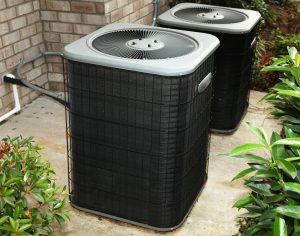 We hate to break the news to you, but someone has to. Air conditioners don’t last forever. There’s just no caveat to this. Perhaps 50 years in the future there will be air conditioners with technology that can last 50 years, but that technology just isn’t here yet. Instead, we need to work within finite timeframes. Air conditioners have a general lifespan of between 10-15 years. Anything beyond that lifespan is going to seriously wane in both effective cooling power and energy efficiency.
We hate to break the news to you, but someone has to. Air conditioners don’t last forever. There’s just no caveat to this. Perhaps 50 years in the future there will be air conditioners with technology that can last 50 years, but that technology just isn’t here yet. Instead, we need to work within finite timeframes. Air conditioners have a general lifespan of between 10-15 years. Anything beyond that lifespan is going to seriously wane in both effective cooling power and energy efficiency. Air conditioners function by cooling your air, not the objects in your home. This means you can’t expect peak efficiency and effectiveness from an air conditioner that’s trying to cool air rife with dust. Dust can be a huge detriment to the cooling process, and even though your air conditioner is set up in a way to deal with some of it, you’re going to have to help it.
Air conditioners function by cooling your air, not the objects in your home. This means you can’t expect peak efficiency and effectiveness from an air conditioner that’s trying to cool air rife with dust. Dust can be a huge detriment to the cooling process, and even though your air conditioner is set up in a way to deal with some of it, you’re going to have to help it.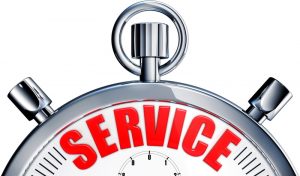 There are a lot of different problems that may affect any given air conditioning system. While some problems, like those stemming from basic wear and tear, really cannot be avoided completely, there are also plenty of issues that can be avoided if you know the proper steps and precautions to take. However, it’s important to remember that many AC issues actually may result from different root problems. This is the case with short cycling—a common problem with serious implications.
There are a lot of different problems that may affect any given air conditioning system. While some problems, like those stemming from basic wear and tear, really cannot be avoided completely, there are also plenty of issues that can be avoided if you know the proper steps and precautions to take. However, it’s important to remember that many AC issues actually may result from different root problems. This is the case with short cycling—a common problem with serious implications.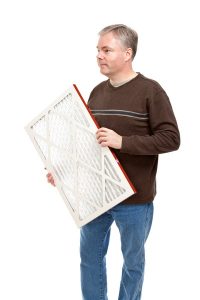 You’ll need
You’ll need 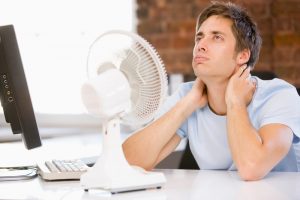 What do you think of when you think of air conditioning problems? A system that won’t start up? An air conditioner with a dreaded refrigerant leak? Maybe a system that short cycles? These are all obvious problems, but they’re also big-picture issues. What about the more “minor” problems that can have big implications for your system if left unaddressed? Something like, say, dirty coils? Because if your AC’s coils are dirty, you’re asking for trouble!
What do you think of when you think of air conditioning problems? A system that won’t start up? An air conditioner with a dreaded refrigerant leak? Maybe a system that short cycles? These are all obvious problems, but they’re also big-picture issues. What about the more “minor” problems that can have big implications for your system if left unaddressed? Something like, say, dirty coils? Because if your AC’s coils are dirty, you’re asking for trouble!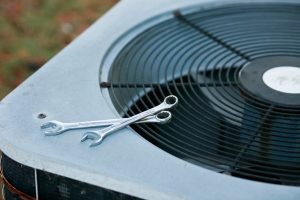 How many times have you completed a project at the last minute only to suffer some unforeseen consequences? Hopefully, you’ve learned that completing a big project at the last minute is rarely a good idea, nor is waiting too long to service your car or fix a leaky roof. Still, we understand the urge to wait to repair your air conditioning system, especially when the warmer weather comes to a close and you don’t really need the AC for much longer, if at all.
How many times have you completed a project at the last minute only to suffer some unforeseen consequences? Hopefully, you’ve learned that completing a big project at the last minute is rarely a good idea, nor is waiting too long to service your car or fix a leaky roof. Still, we understand the urge to wait to repair your air conditioning system, especially when the warmer weather comes to a close and you don’t really need the AC for much longer, if at all.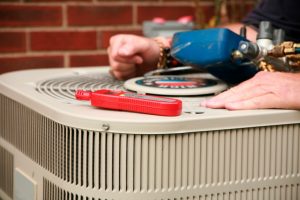 It’s hard to say why air conditioners break when they do. Your air conditioning system may be working just fine one day but refuse to start up the next. On the other hand, air conditioners may wear out slowly, with noticeably reduced performance that one day leads to a not-entirely-unexpected system breakdown.
It’s hard to say why air conditioners break when they do. Your air conditioning system may be working just fine one day but refuse to start up the next. On the other hand, air conditioners may wear out slowly, with noticeably reduced performance that one day leads to a not-entirely-unexpected system breakdown. As air conditioning technicians, we always advise you to leave major
As air conditioning technicians, we always advise you to leave major 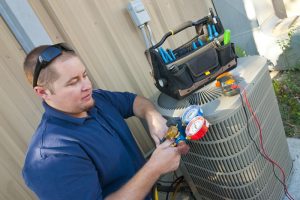 A question we get a lot when we show up for
A question we get a lot when we show up for